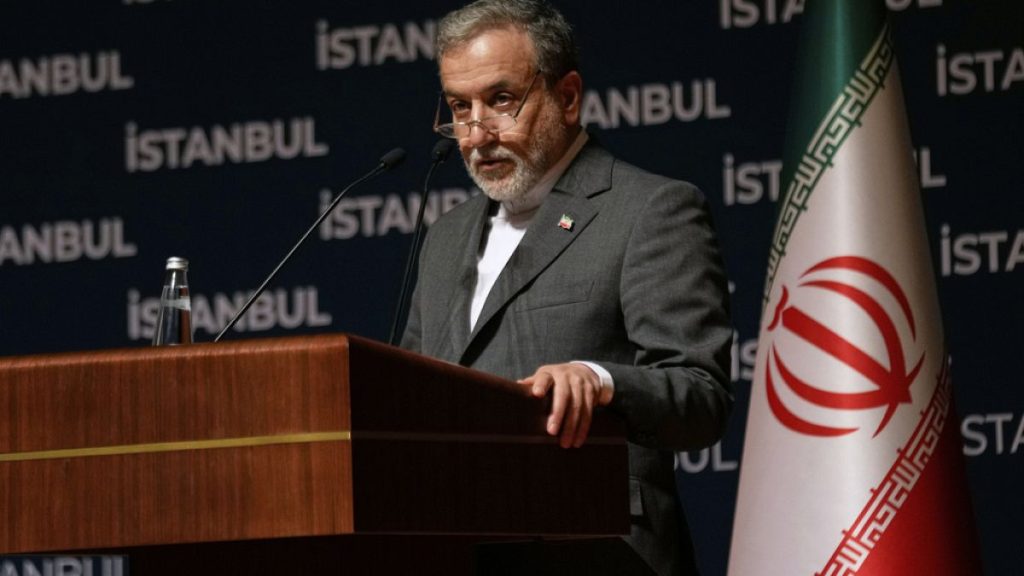In a dramatic escalation of tensions in the Middle East, the United States launched attacks on three key nuclear facilities in Iran. These operations, reportedly coordinated with Israel, come amid escalating threats from Tehran against US and Israeli interests. The move has garnered a sharp response from Iranian officials, who condemned the attacks as an act of aggression, claiming that the US has crossed significant boundaries. With implications for regional stability and security, the situation remains volatile as diplomatic channels are strained.
| Article Subheadings |
|---|
| 1) US Military Operations and Targets |
| 2) Iranian Government’s Response |
| 3) The Role of Russia in the Conflict |
| 4) Israeli Involvement and Objectives |
| 5) Regional Implications and Future Outlook |
US Military Operations and Targets
The United States conducted military strikes on three critical nuclear sites in Iran—specifically Fordo, Isfahan, and Natanz—early on a Sunday morning. These operations were executed without prior congressional approval, and US President Donald Trump declared in a televised address that the facilities had been “completely and fully obliterated.” The rationale behind these strikes centers on halting Iran’s nuclear ambitions and its potential threats to regional and international security. As a pivotal moment in US-Iran relations, these military actions are viewed as a preemptive measure aimed at crippling Iran’s capabilities to develop nuclear weapons.
Iranian Government’s Response
In the immediate aftermath of the attacks, Iranian officials expressed outrage. Foreign Minister Abbas Araghchi condemned the US actions as a significant breach of international norms, labeling them an unprecedented aggression against the sovereignty of Iran. During a press conference in Turkey, he stated, “The warmongering, a lawless administration in Washington is solely and fully responsible for the dangerous consequences and far-reaching implications of its act of aggression.” Araghchi called upon the UN Security Council to convene an emergency session to address the crisis, stressing Iran’s right to defense as outlined in the UN Charter. His comments reflect a broader sentiment in Iran that the time for diplomatic engagement has all but run out, marking a pivotal shift in the nation’s approach to international relations.
The Role of Russia in the Conflict
Iran’s foreign minister is set to visit Moscow to meet with Russian President Vladimir Putin, reflecting the solidified strategic partnership between the two nations. Iran and Russia have been cooperating closely, especially regarding conflicts in the region, including the war in Ukraine, where Iran has supplied Russia with drones. This partnership complicates the situation further, as Moscow may seek to capitalize on the US’s military actions to bolster its own position against Western influence. Analysts suggest that any retaliation from Iran could involve not only military responses but also heightened collaboration with Russia, potentially increasing tensions and instability in the broader region.
Israeli Involvement and Objectives
The Israeli Defense Forces (IDF) confirmed that their military strategy is closely aligned with US actions in Iran. They released footage of attacks on Iranian military assets, claiming successful strikes on missile launchers and troop concentrations in locations like Isfahan, Bushehr, and Ahvaz. The primary goal of the Israeli operations targets the destruction of Iran’s air defense and missile systems while undermining capabilities associated with its nuclear development. According to military analysts, this growing collaboration between the US and Israel is indicative of a unified effort to diminish threats posed by Iran, which has long been considered a premier adversary in the Middle East.
Regional Implications and Future Outlook
The ramifications of the US and Israeli strikes may extend far beyond the involved parties. Observers caution that the potential for retaliatory attacks by Iran could lead to a wider conflict, bringing regional allies into the fray. Tehran has signaled intentions for revenge, which could manifest in various forms, such as asymmetric warfare tactics targeting US bases or interests throughout the region. Furthermore, the precarious balance of power in the Middle East is likely to be disrupted, stirring uncertainties in markets, politics, and alliances. As diplomacy falters and hostilities escalate, the potential for unintended consequences grows, raising troubling questions about future security in the region.
| No. | Key Points |
|---|---|
| 1 | The US targeted key Iranian nuclear sites in a significant military strike. |
| 2 | Iran condemned the attacks, claiming it has the right to defend itself. |
| 3 | Iran and Russia are strengthening their alliance amid escalating tensions. |
| 4 | Israel claims involvement in targeting Iranian military assets as part of a coordinated effort. |
| 5 | Further retaliatory actions from Iran could destabilize the broader Middle East region. |
Summary
The recent military actions by the United States against Iranian nuclear facilities mark a potentially decisive moment in the ongoing conflict between the two nations. This escalation complicates an already volatile region, as Iran’s government vows to respond, increasing risks of further military engagement. The alliance between Iran and Russia adds another layer of intricacy to the situation, with global repercussions possible. As diplomatic routes become less viable, the international community watches closely to gauge the unfolding developments and their implications for long-term stability.
Frequently Asked Questions
Question: Why did the US launch attacks on Iran’s nuclear facilities?
The US initiated strikes targeted at Iran’s nuclear facilities to halt Iran’s nuclear program and mitigate perceived threats to regional and global security.
Question: What was Iran’s response to the US military actions?
Iran’s officials strongly condemned the attacks, describing them as aggressive acts and asserting their right to defend themselves in accordance with international law.
Question: How does the US-Israel relationship impact the situation in Iran?
The strong military and political collaboration between the US and Israel reinforces efforts to counter Iran’s influence and nuclear capabilities, complicating diplomatic efforts in the region.


